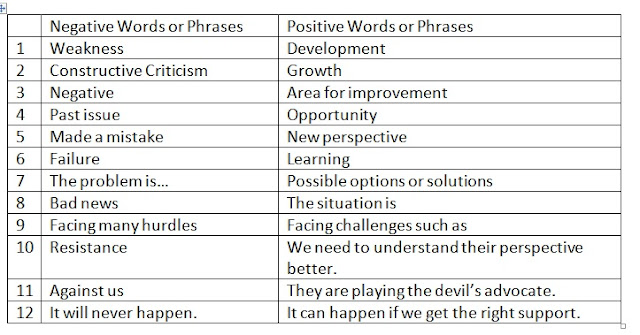2. Written communication skills – are about how you write and present your thoughts and ideas. These are further categorized into:
a) Business Email Writing
b) Report Writing
c) Content Writing
3. Influencing communication skills – are how you influence the other person or people through your spoken and written word. These are further categorized into:
a) Listening Skills
b) Probing Skills
c) Feedback Skills
What are the characteristics of good communication skills?
Whether oral, written or influencing, certain characteristics are common to all 3 type. These are a must have to possess good communication skills:
1. Assertive –Assertiveness is about being confident, forceful, respectful, collaborative, and explicitly stating what you want.
One extreme of assertiveness is being passive and the other extreme is being aggressive.
In contrast, an assertive communication is a lot more direct on expectations, action, impact and is willing to collaborate if help is needed.
Assertive communicators will:
> state needs, feelings, and wants clearly and appropriately
> use “I” statements
> listen well without interrupting
> not allow others to side-track, manipulate, or abuse them
> stand up for their rights
> address issues and problems as they arise
> create a respectful environment
The assertive communicator will say, believe, or behave in this way:
> “I realize I have choices in my life, and I consider my options.”
> “I speak clearly, honestly, and to the point.”
> “I can’t control others, but I can control myself.”
> “I place a high priority on having my rights respected.”
> “I respect others and myself equally.
If we are assertive, we take care of ourselves and others, which is necessary for a good mental and physical health and positive relationships.
2. Empathetic:Empathy means:
• Understanding and appreciating how others feel.
• Avoid hurting the feelings of others.
• Getting in touch, relating, and being sensitive to other people’s emotions and feelings.
• Respect other people’s emotions.
• Care about how others feel.
• Express the feelings and the facts from the other person’s view.
• Notice the unsaid – read between the lines of what the customer wrote.
Here are examples of words and phrases that are empathetic:
• I experienced the same.
• I really want to hear what you have to say.
• Give yourself some time to process.
• If I was you, I would feel the same.
• I wish things were different.
• I can imagine how that might have felt.
• I can see this is making you upset.
• You are frustrated.
• I know how you feel.
• That must be hard.
• Wow. I don’t know what to say.
• I can’t imagine what you must be going through.
• I wish I could make it better.
• It makes me really sad to hear this happened.
• Thank you for sharing with me.
• I’m glad you told me.
• This must be hard to talk about. Thanks for opening up to me.
• I’m here for you.
• That must have annoyed you.
• We really appreciate.
• I have experienced a similar issue.
“Empathy works so well because it does not require a solution. It requires only understanding”. John Medina.
3. Being Positive:
Words are free. It is how you use them that will benefit or cost you. For good communication you want to be positive in your sentiment and emotion.
In some cases when you must deliver bad news, you cannot force the sentiment to be positive. However, you can be less negative by using more neutral and moderate words.
Here are examples of negative words or phrases which can be said in a more positive manner.








No comments:
Post a Comment